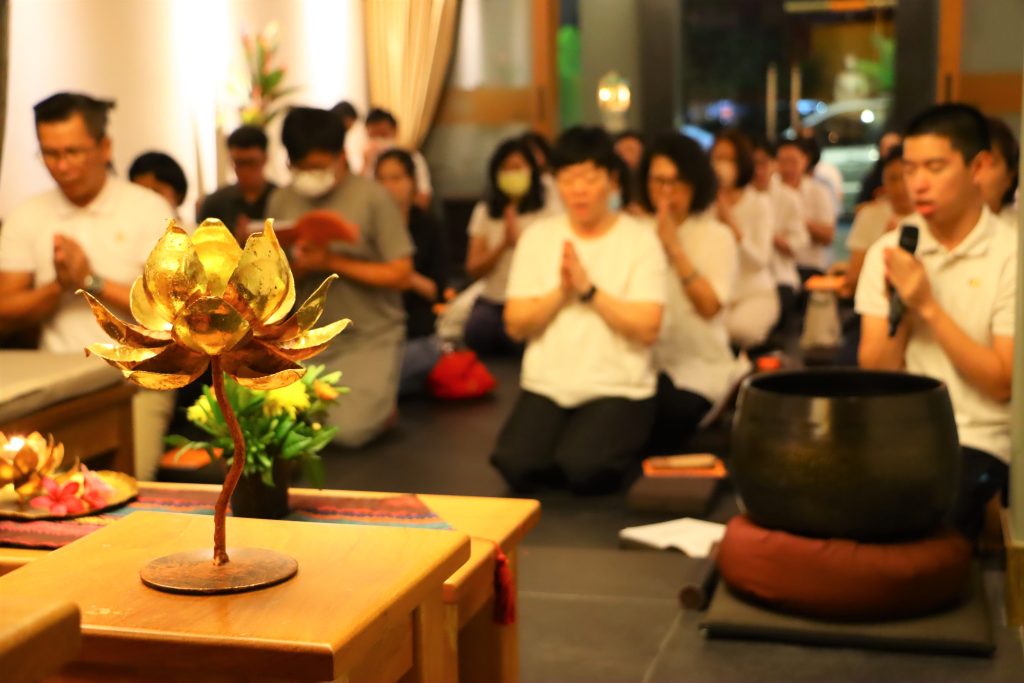
Having the support of a Dhamma community helps us to keep to our aspirations.
The Buddha proclaimed four kinds of aspirations or resolve (cattāro adhitthānāni) to be reflected and striven for daily in Digha Nikāya 33 :
- ‘Paññā’ – practice in a way that leads to liberation from ‘Saṃsāra’. Aspire for wisdom, clarity, and discretion to make right decisions. One can cultivate wisdom by associating and learning from those who are wise, then meditating and reflecting on what has been learned. Doing this on a daily basis, we gradually gain wisdom over time.
- ‘Sacca’ – is the ability to see the reality of Anicca, Dukkha & Anatta. Aspire to gain the truth and insights into the Dhamma. This is not just learning from attending talks and courses. Through the arising of wisdom from meditation and reflection, we can see the true nature of life and the world more clearly.
- ‘Cāga’ – relinquish fine, subtle unwholesome qualities such as conceit, deep jealousy, and ignorance. Aspire for the ability to care and share, and give without expectations and attachments. In so doing, we give up unwholesome qualities and learn to practice liberality, gaining freedom from the bonds of attachment.
- ‘Upasama’ – Attain inner peace, calmness, serenity and tranquility and peace does not happen overnight. We need to cultivate ourselves moment to moment over a period of time. Practice meditation every day, and make time and space for quiet reflection.
Many of us, having started our journey to learn and understand the Buddha’s teachings, often aspire for spiritual attainment. It is however not to be taken lightly. The nature of spiritual aspirations are :
- Made not just at the beginning or end of the year.
- Remind yourself daily or several times a day.
- Stick to a few good aspirations.
- Have a clear vision of your aspirations.
- Develop energy and determination to carry out the aspirations.
 Holistic Education for Integral Human Development
Holistic Education for Integral Human Development